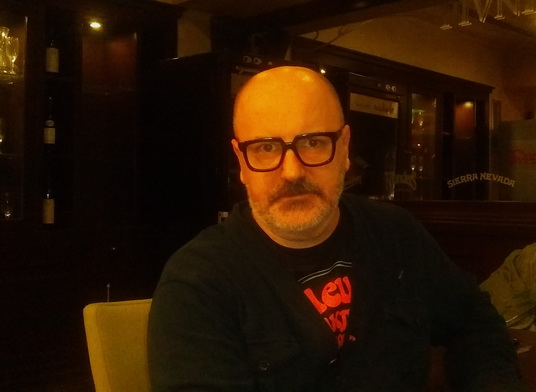Theater director Kokan Mladenović believes that many changes are awaiting us in the post pandemic period. Among other things, the theater will have to be reorganized, to be "much smarter, more tempting and more radical", because the routine of producing and participating in plays will no longer be enough in order for someone to buy a ticket. If that doesn't happen, theater will become a "petrified art", like the opera.
"The theater must be reorganized in this post-Corona period that awaits us. Even the stable theater audience that we had - and we all know that it is always a miserable percentage of the population in a nation that no longer has any cherished cultural needs – caused by the fears, panic and discontinuity of going to the theater, got weaned of it. The theater would now have to be much smarter, more tempting and more radical, because the routine of producing and participating in plays will no longer be enough in order for someone to buy a ticket and watch something. Only with a special eagerness and a special choice of what we want to say in that post-Covid world can we attract the audience. Theaters mostly worked as much as they could, and yet, with that mentality of ours, every plague, even Covid, is a good alibi for inaction. So we did as much as we could. I think that things are slowly coming to an end in this respect", stated Mladenovic in an interview for SEEcult.org.

In his opinion, the changes must be initiated by the citizens themselves.
"We have to start them ourselves. Our shameful budget for culture is still shameful. The system nursing, i.e. neglecting of cultural institutions is so elaborated that it is illusory to expect that the government will want people to be more cultured, because in that case people will not want this kind of government, so that the situation is completely clear to me. A month ago, there was an excellent interview by Dubravka Vrgoc about the post-Covid theater and what awaits us ... We are naive if we think that this is a small change. Covid showed how small the world really is, a village where not only information, but also diseases and viruses are transmitted in an incredible pace. In that sense, the world is a community that is easy to endanger, and which makes life even harder with hatred, wars, capital, etc.… Theater will definitely, if it does not change, become opera - petrified art of standard forms, which some people who especially like it go to, but not to say and experience something radically now, but it is more of a cultural habit. These changes depend on those who run our institutions, and they are run mostly by idealess people, or political cowards, so - we will see what will happen now ... ", stated Mladenovic.
Children and young people need to be shown that there is nothing better than travel and open borders, because it is also the best remedy against fascism, says Mladenovic, who recentlydirected plays, one after another, about the problem of violence in society (Children of Hell Orange in Novi Sad) and about the patriarchal pathologies that destroy it (The Last Girls in Subotica).
Asked whether "cancel culture" could be a way of social pressure to start and solve some things, Mladenovic said that it is not wise to give up culture, or cancel or boycott, but that he thinks that radicalism of some actions is occasionally necessary to understand how big the problem is.
"We are used to keeping silent about political injustices, to keeping silent about violence ... If we suffer everything, if every time we witness or hear about an injustice, we do not react immediately, we are actually training our spirit to become cowardly and compromising. If we are still dealing with art, then we stop having the right to talk about deviations, because we did not use the right to speak out loud when it was needed, "Mladenovic added.
The entire interview (in Serbian) can be found on this link.
(SEEcult.org)
Funded by the International Relief Fund for Organisations in Culture and Education 2021 of the German Federal Foreign Office, the Goethe-Institut and other partners, goethe.de/relieffund
